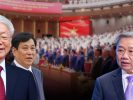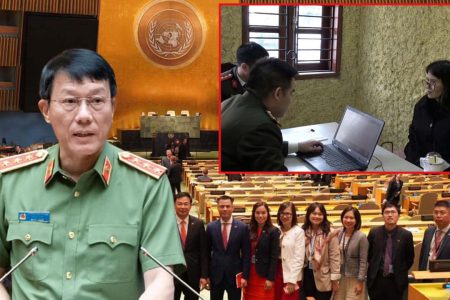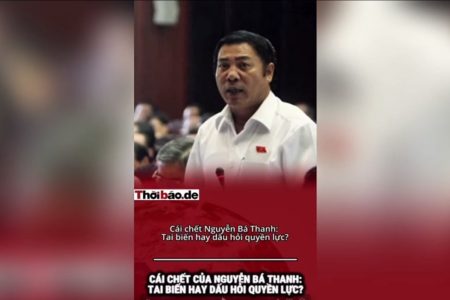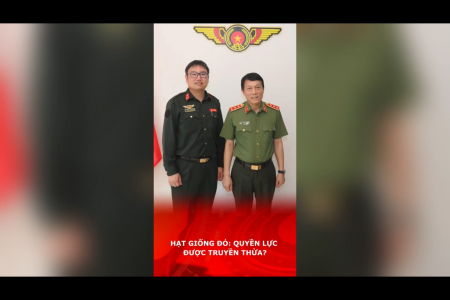
Before the 12th Congress of the Communist Party (January 2016) the situation of „economic and institutional instability“ led many observers to believe that the Party’s rulership was not stable, and the Party was concerned about a moral recession and lifestyles of many officials may threaten the regime’s survival. However, the totalitarian party regime is changing itself in response to the situation: internal self-consolidation at the same time with efforts to recover the economy and cope with the COVID-19 pandemic.
Requiring self-change to adapt is important to motivate continued reform and transformation, but on the other hand, it can also lead to excessive concentration of power, the risk of oppressive personal power dominating institutional norms, strengthening authoritarianism, harming democracy, and diminishing trust that underpins weak legitimacy.
„Self-reinforcement„
After the 12th Party Congress, a series of directives and resolutions on the organization, selection criteria, discipline, ethical example … towards building the leadership of the Party, especially the Politburo, the Secretariat and the Central Committee. Resolution 4 in 2016 on strengthening party building and reorganization; preventing and repelling the deterioration of political ideology, morality, lifestyle, the expression „self-evolving„, „self-transforming“ within is one of the „rational party“ bases to promote Anti-corruption campaign is taking place seriously. Thousands of officials „violating the principles“ of the party and state law „causing serious consequences“ are disciplined by the party with various forms and examined for penal liability, of which 3 notably members of the Politburo and many members of the Central Committee leaders of provinces, cities, armed forces … of the 12th term were disciplined.
The Party emphasized that cadres‘ work is decisive for the existence of the regime, so at the same time with internal „no-forbidden“ purge is to consolidate the organization, to plan cadres, and to prepare the congress from all levels. base to central. By the end of October 2020, provincial, city, and equivalent congresses to discuss documents and elect local party leaders have been „completed„, and conducted „review,“ an unprecedented event. there is a precedent in party activities, in Hanoi on November 19. The 12th and 13th plenum discussing party personnel work also took place, in which the list of members of the Central Committee, both from the 12th and new terms planned for the 13 tenure, is about more than 200 people.

There are more than two months until the 13th Congress is scheduled to be held in January 2021. During this time, according to the process, there are important „contents“ to be completed, such as the proposed „four-pillar“ structure and the new Politburo members. The transfer of power at the top of the party is a complicated matter, given the lack of succession planning, and so „special cases„, which means „too“ set standards, especially in terms of age, must „consult“ the Politburo and the Central Committee. Along with the preparation for the congress, the 14th Plenum of the Central Committee will take place tomorrow, in which the above content will be mainly on the agenda.
The Party said that the 13th National Congress would take place successfully. Observers may comment „striking“ that „surprise“ can still happen at „89th minute.“ I think that after drastic moves to prevent the risk of „faction“ through „anti-corruption,“ the need for consensus between leaders is returning to the „trajectory“ and the selection of members of the 13th Politburo should get the approval of the current Politburo and the Central Committee.
„Dual goal„
Economic growth is the „lifesaver“ for the weak party’s legitimacy after „macroeconomic instabilities“ and institutions. The growth rate of gross domestic product GDP gradually regained momentum in the first four years: 2016 – 6.21%; 2017 – 6.81%; 2018 – 7.08%; 2019 – 7.02%. The COVID-19 pandemic has „blocked“ this rise. The World Monetary Fund (IMF) recently, on November 20, forecasted a 2.4% increase in Vietnam’s GDP in 2020, “one of the highest rates in the world in the year amid the global pandemic, thanks to decisive steps to prevent the negative impact of the COVID-19 pandemic on the economy.” With a practical and proactive approach, the Government sets a dual goal for the economy to both prevent and combat the COVID epidemic, while recovering and promoting growth has resulted in „double success“ during the term. This is the basis for ensuring employment growth and the implementation of social policies.
Ignoring the „debate“ on the accuracy of the data, the above result is a „remarkable effort“ after the period of macroeconomic crisis due to policy mistakes in the previous term. The pragmatic change in economic policy has brought into play the effect of mobilizing greater social resources for growth. The elites, researchers have been „more assured“ with „the government of construction“ with the motto of „integrity, service,“ „doing what benefits people and businesses,“ which focus on creating a favorable business environment, encouraging start-ups, and removing barriers to legal, administrative procedures and public enforcement. One of the necessary highlights is that the Government has pointed out that „institutional reform is a great room for growth.“
In my opinion, the effect of „pragmatic policy“ and the mode of administration of the „constructivist government“ has spread positively to other areas. First of all, the conception of socialist ideology has been „soft“ and less „dogmatic.“ If the foreign policy is „pragmatic,“ multilateral with all political regimes, why shouldn’t the „domestic“ policy, especially in economics, be „pragmatic“ for development!? In addition, the implementation of current policies not only does not „weaken“ but also promotes the „advantage“ of the state in urgent situations such as pandemic prevention and response and disaster response, storms, floods, landslides in the Central region recently.
„Over-focus„
The reformers‘ fear: „absolute power leads to absolute corruption.“ The reality in many countries has shown that excessive concentration of power always tends to lead to dictatorship. Xi Jinping’s current rule of China shows that the above remarks are authentic, from totalitarian to authoritarian with fragile borders.
A feature of the central government is the absence of counterbalancing political institutions, such as the rule of law, or democratic accountability, which mainly relies on the ruling class, through the path of „education.“ The collective leadership is not an effective mechanism of power control but can be „acceptable“ to prevent a dictatorship, and a traditional mutual equilibrium can be established.
Although at present, agencies such as the Central Organizing Commission and the Central Inspection Commission have certain roles in the process of „self-consolidation,“ rectification, and anti-corruption, which „counterbalance“ controls them. Therefore, the maintenance of the principle of collective leadership is necessary for the totalitarian party regime, on the one hand, to avoid corruption of power, the cult of the individual leader and tyranny, and on the other, to “continue to“ reform the political institutions, transform the democracy to be more suitable for the market economy.
Thoibao.de (Translated)


























